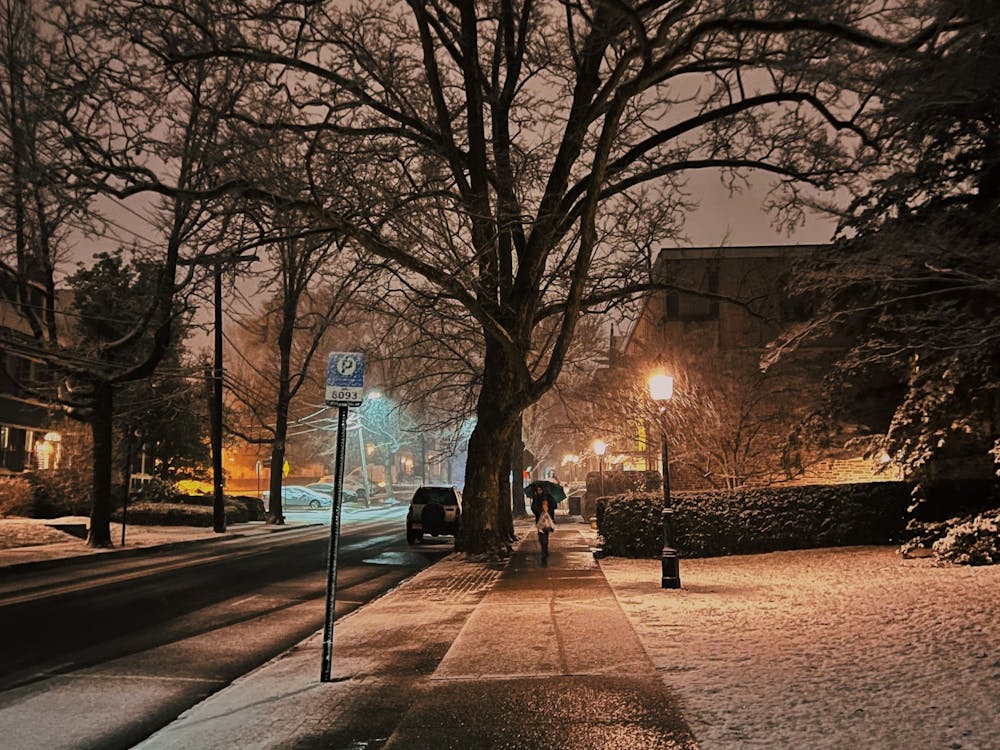Princeton University wouldn’t have its carpenters do their work without a hammer, so why does the Princeton University Police Department not have the tools it needs to do its job effectively?
PUPD is a full-service law enforcement agency, staffed by both sworn and non-sworn officers. The sworn officers attend the same state-certified basic police training as their municipal counterparts, yet the University Board of Trustees chooses not to arm PUPD officers with handguns. Currently, PUPD is rolling out rifles to some of its officers to be used in the event of an active shooter on campus. However, these guns are to be locked and secured inside patrol vehicles and only to be used in an active shooter situation. They are useless in the event of a robbery, burglary, or sexual assault — all violent crimes often times committed with a weapon. Officers still do not have access to handguns on their person.
Police officers have dangerous jobs, whether they are municipal cops, transit cops, or campus cops. Last September, during a manhunt for a gunman who was targeting police officers, a University of Pennsylvania police officer was shot just five blocks outside of the University of Pennsylvania campus. In November, a Wayne State University police officer was shot and killed while questioning a suspicious person adjacent to the campus and in December, a Georgia Southwestern State University police officer was shot and killed responding to a domestic dispute. And let us not forget police officer Sean Collier, of the MIT Police Department, who was ambushed and killed by the Boston Marathon bombers while he sat in his cruiser on MIT’s campus. Last November it was an Ohio State University police officer who put an end to an ISIL-claimed attack by neutralizing the assailant with his department-issued handgun, one minute after the incident began in the middle of campus.
Unarmed police officers are as much at risk as their armed colleagues, if not more so. In March 2007, two unarmed New York City auxiliary police officers, Nicholas Pekearo and Yevgeniy Marshalik, were killed when a disgruntled former restaurant worker ran into them after shooting and killing two of his former co-workers. He shot the unarmed officers at point-blank range while they were taking cover behind parked cars.
And while Princeton is not Detroit or Philadelphia, and the University has a relatively safe campus, we do not exist in a bubble. Crime does exist in the suburbs, albeit at a much lower frequency than in urban cities, and the University attracts many dignitaries and has many programs that are open to the public. In 2005, the University of Oklahoma in Norman, another relatively safe campus, was the scene of a bombing after a mechanical engineering student built and detonated a bomb outside the football stadium around halftime. And just up Route 1 in Piscataway, on Rutgers University’s suburban Livingston campus, a faculty member and student were stabbed when a former student went on a rampage in November.
An armed police department won’t stop events such as the ones described above from occurring. However, it will prevent further and worse injuries and fatalities from happening. This is because the campus cop, who has institutional knowledge of his or her jurisdiction, will be the first to respond and quell the situation.
Of our sister Ivy League schools, Harvard, Yale, Cornell, Penn, and Brown all have armed police departments to better protect their students. We are the only Ivy with an unarmed police department (neither Columbia nor Dartmouth maintains a police department). In the event of a crime happening on campus, it will be PUPD who shows up first. It’s time we arm PUPD officers, for their safety and ours, and allow them to do the job they were hired to do.
Ari L. Maas is a Woodrow Wilson School Master of Public Policy student. He holds a B.S. in Civil Engineering from Rutgers University and a J.D. from New York Law School. He is an attorney in both New York and New Jersey and has over 13 years of law enforcement experience.







